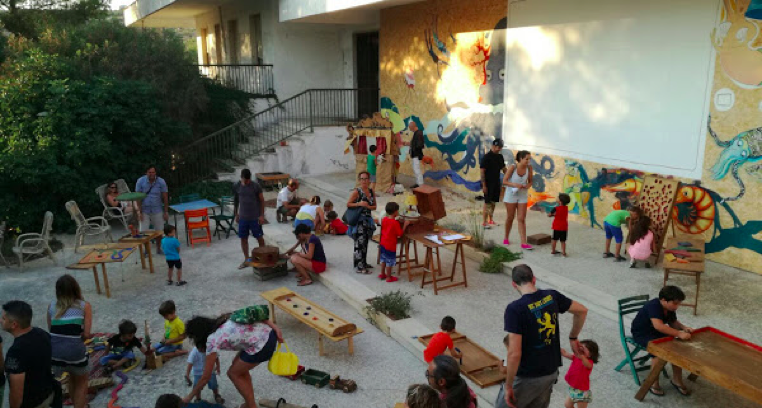Playstations and mobile phones are turned off, brains and hands are turned on! The "Itinerant Playroom" is an event that every year fills the garden of the Salento Bike Cafè with entirely hand-built games, in a shared space where "children of all ages and heights from 0 to 99 years" can participate.
The spirit of the initiative is explained by its creator, Valerio Bonsegna: "Play creates an 'other' space where everyone can give up their social role - in which adults are often confined - and rediscover the inner child."
If it is true, as Platone said, “that you can find out more about a person in an hour of play than in a year of conversation”, the ludus becomes a space where people of different age groups, social backgrounds, cultures and origin can "get involved" together, making the best use of their resources: from manual skill, to control and balance, from mutual listening to the ability to concentrate.
We are often condemned to a passive role (from television, cinema), or falsely active (from electronic games and playstations), but here it is a question of discovering yourself the rules, using intuition, or even inventing them!
The games available to the participants were handmaded - with recycled material - in an atelier / garage in the countryside of Velletri, just outside Rome.
It took "ingenuity and experience, for the idea to become real and the playroom to finally take shape."
The technique used was that of Up-cycling, which consists in giving life to objects or parts of objects that have gone into disuse (such as, drawers, table legs, curtain rods), transforming them into handy objects ready to "be played".
The culture of the Ludubus (intinerant playrooms) was born in England and Germany in the 1970s. It was somehow an emanation of the hippye culture, which developed traveling vans full of games and educational activities, taking them to places where there were no adequate facilities, in small villages in the mountains and in remote villages.
Some of the games are traditional (Chinese, Latin, Scandinavian), others are newly created.
Here are some examples of games:
- "The cooperative pencil" (where 4/8 people guide, with a thread each, a huge pencil fasten to a wooden disc)
- "Tangram" (Ancient game of Chinese origin, obtained by breaking down a square into seven parts. The aim of the puzzle is to reform the square using all the pieces without overlapping. It is also possible to obtain an almost infinite number of figures, as well as the square)
- "In two you can" (two players hold the handles at the ends of a wooden table inside which there are many "traps": they must try to move the table by sliding a marble from one side of the path to the other without making it fall into the “traps”).
- "Snake" (the player stands on an unstable platform, must find balance, and make the path with the marble without letting it fall into the holes).
- "Mokki" (Finnish national game. You throw a piece of wood trying to drop some pins. The score of the throw is equal to the number of pins dropped or, if only one falls, to the number engraved on the pin. that the pins must be repositioned where they fell, so the playing field is getting wider and wider)

